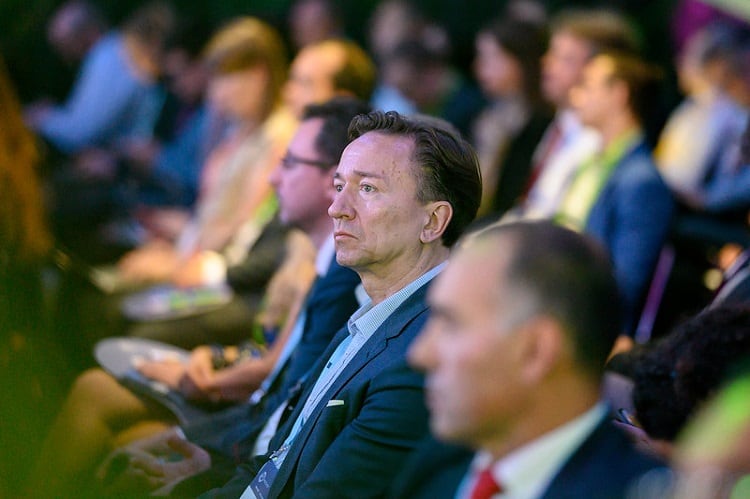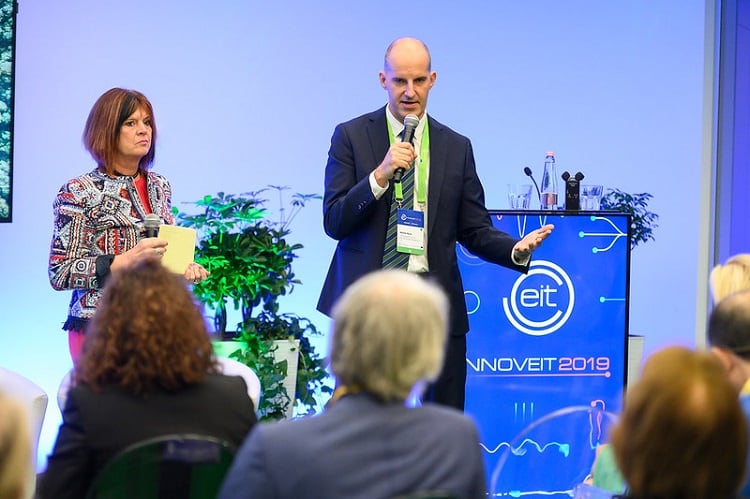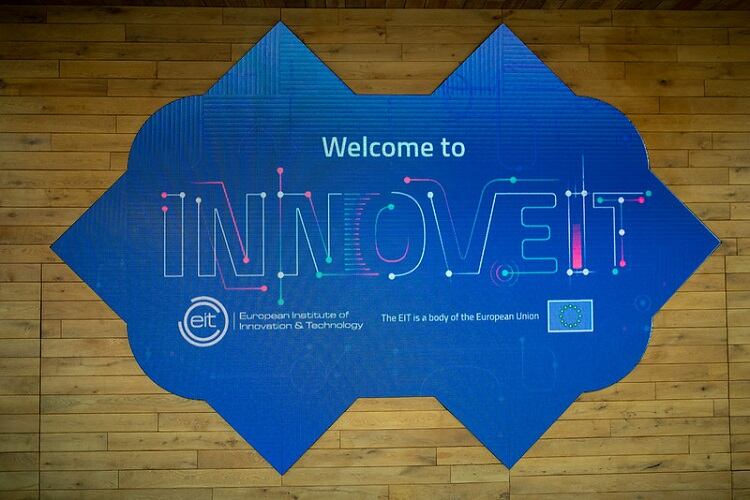With diabetes and obesity rates on the rise, it could be argued today’s food system is not functioning as it should.
According to the World Health Organization (WHO), the number of people with diabetes has risen from 108 million in 1980 to 422 million this decade, and worldwide obesity has tripled since 1975.
“We believe that some of [this], at least, is caused by the food that people eat and the way they eat [it],” said EIT Food CEO Dr Andy Zynga when we caught up at INNOVEIT in Budapest, Hungary last week. “We believe that innovations need to happen in the food system and in the way food is produced, innovated, and valued by society.”
Food waste is another major concern for EIT Food – a pan-European consortium funded by the EU that focuses on entrepreneurship and innovation in the food sector. “Approximately 30% of all the food in the world is wasted, and we believe it is necessary to come up with the right innovations to help address this: the make citizens healthier and to avoid that food waste,” Dr Zynga continued.
The CEO told this publication that innovation in food education and food tech start-ups must be included when taking a ‘systemic approach’ to changing up the food system. So which areas in particular are most in need of attention?
Primary production and protein
Certain trending terms, such as ‘smart farming’ and ‘regenerative farming’, are making the rounds today, the CEO revealed. Whatever the turn of phrase, primary production is a sector ‘ripe for major innovation’, he said. “If I were to look and see where there are lot of low hanging fruits, I would say that is the area.”
Indeed, innovation in primary production is building in momentum around the world. Vertical farming has been touted as one way of improving food security as climate change increases, fresh water supplies diminish, and urbanisation accelerates. And artificial intelligence (AI) solutions are being developed to deliver on-farm improvements in the ‘future ag tech’ space.

One year from now, Dr Zynga predicts much more will have changed at this on-farm level. “I believe that many more innovations would have happened in the agricultural sector,” he told this publication. “There is an increased focus on primary production, so I think we will see many more great solutions.”
The food chief also predicts more innovation is on its way in the alternative protein space, citing new meat analogues, cellular meat, and novel plant proteins, as areas of interest. “We believe that there is enormous opportunity. There are 30,000 edible plants in the world and right now, mankind only eats a few thousand of those. There are many more things to be discovered.”
A bigger budget to fund food innovation?
EIT Food is part of the European Institute of Innovation and Technology (EIT), which works to nurture innovation across the bloc in a variety of areas, including health, climate, energy, and food. And now, according to EIT director Martin Kern, the body may have more budget than ever to fund innovation in these sectors.
At INNOVEIT, Kern revealed it had been proposed that EIT receive a 25% increased budget – from €2.4bn up to €3bn – for the period 2021-2027.
“We are extremely proud that the Commission has proposed this at a time when most of the programmes are talking about cutting down [budgets],” said Kern. “What will it mean for EIT? It will allow us to sustain the existing knowledge and innovation communities but also launch new ones,” he told delegates, referring to the most recently announced Creative & Cultural Industries knowledge and innovation community (KIC).

While the proposal is still under discussion in the European Parliament, FoodNavigator asked the EIT Food chief what the 25% increase might mean for his KIC.
“Our hope would be that it would lead to a higher budget for the activities that we have today,” said Dr Zynga. “We believe that we are on a really good path to making a real impact in the food system. Transforming it, in Europe and the world.
“We are hopeful that the added budget [would] lead to more budget coming our way,” he told us, adding: “That is my hope, and I believe that is probably going to happen”.
The video version of FoodNavigator's interview with EIT Food chief Dr Andy Zynga is available to watch here.





